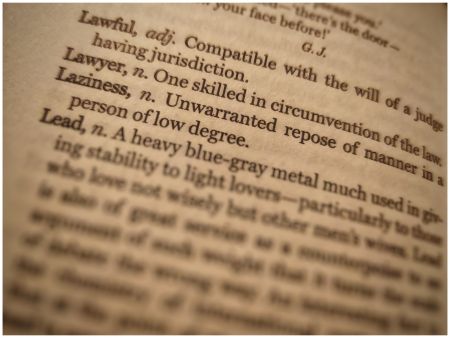Fungible
|
|
Fungible /fʌnʤəbl/ (adj.)
In all respects other than its most basic ontology, identical. For all intents and purposes, to all men and women who are not pedants, entirely interchangeable. Interchangeable; undifferentiable, sure: but not the same thing. The same, but not, if you see, the same.
Fungible securities
Until recently, the word “fungible” only really found purchase in the world of transferable securities, where it denotes distinct securities of the same issue, and having the same securities identification number — thus satisfying all the world bar those concerned with what is on or off one’s balance sheet and how one’s financial reporting should reflect it, who like the comfort of knowing that the security which comes back to you, which is economically identical to the one you sent out, might not be the one you sent out, but that is still okay. Two fungible instruments are distinct but nevertheless indistinguishable in legal and economic terms.
So, the key takeaway for nervous types is this: “Fungible” does not mean “somewhat like”. It means identical. The term of securities transfer art “equivalent” means “entirely fungible”. Not just “broadly similar”.
Non-fungible tokens
I said, “until recently”. Recently we have witnessed the emergence of the non-fungible token. This is a new asset class specifically designed for gullible people. Non-fungible things are like the dark inversion of fungible things. Where fungible securities are the same, but not the same, NFTs are not the same, but the same.
There are great divides in the bedeviling pedantry of law, between things that are the same but somehow, over a period of time, different; things that are different but nonetheless at a given point in time, the same; and — in recent days — things that don’t exist at all, but being unique representations of that nothing on a blockchain, in a Cartesian sense do exist, but weakly, and only along the very single fragile dimension that they are ontologically distinct. Amendment describes that first class; fungibility the second; credulous gulls the third.
So, with feeling:
- Fungible: Individual securities comprising part of a single series (and having a the same ISIN are fungible with each other.
- Not fungible: Securities from different series, even if issued by the same issuer, are not fungible with each other.
- Non-fungible: Tokenised representations of meritless gobbets of intellectual property (Banksy prints, memes, tweets etc.) that are created on a blockchain and sold to stupids are unique, by design, representations of the empty set. This picture with the lens cap on is different from that picture with the lens cap on. A non-
Definition
Assets are fungible where their nature allows them to be replaced in whole or in part with other assets of a like nature. However, it applies only to the equivalence of each unit of a commodity with other units of the same commodity. Fungibility does not describe or relate to any exchange of one commodity for some other, different commodity.
Examples
For example shares in a company can be described as fungible as you can replace those shares with other equivalent shares in the same company. However, shares of an “equivalent” value in another company would not be considered a valid replacement.
Money can also be considered a fungible asset. If you borrow £10 from someone, you do not need to give the same £10 note back. You could give that person another £10 note, or two £5 notes, or any combination of coins that add up to £10 (as long as they are happy to accept that many coppers!)
“Equivalent” and “fungible”: la même chose
Note: in financial markets speak, “equivalent” means fungible. It doesn’t mean “somewhat like". Go see our “equivalent” article for more.
